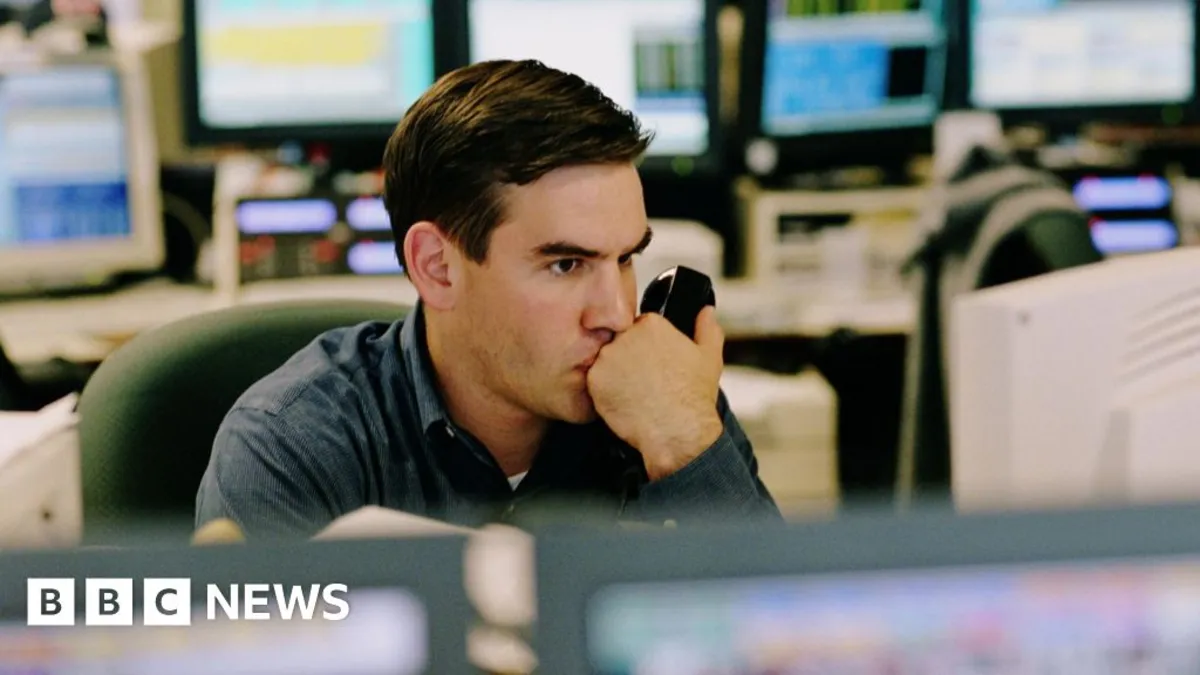
Stock markets in London, Paris, and Berlin experienced significant declines as trading commenced on Thursday, following sweeping tariff announcements made by US President Donald Trump. The UK's FTSE 100 share index saw a decrease of 1%, while France's Cac 40 fell by 1.7%. Earlier in the day, Asian markets also reported sharp declines, signaling widespread concern about the ramifications of these tariffs on the global economy.
Traders are increasingly worried about the potential global economic impact of Trump's tariffs, fearing that these measures could stoke inflation and hinder economic growth. The price of gold, often regarded as a safe-haven asset during times of market turbulence, surged to a record high. At one point on Thursday, gold reached an astonishing $3,167.57 an ounce, before experiencing a slight pullback.
The effects of Trump's tariff announcements were felt strongly across Asia, with the Nikkei in Japan closing down nearly 3% and Hong Kong's Hang Seng index dropping 1.5%. These declines reflect the apprehension among investors regarding the stability of the global trading landscape in light of the US's new trade policies.
The introduction of a 10% baseline levy, along with increased duties on several trading partners, represents a significant reversal of decades of trade liberalization that has shaped the current global trade order. Jay Hatfield, the chief executive at Infrastructure Capital Advisors, described this situation as the "worst-case scenario," suggesting that it could potentially lead the US into a recession. His commentary underscores the prevailing nervous sentiment in the markets.
George Saravelos, head of FX at Deutsche Bank Research, indicated that the new US trade tariffs are a reaction to trade deficits rather than a well-thought-out strategy, as the White House had previously promised. He cautioned that this approach risks undermining the policy credibility of the Trump administration. Saravelos raised concerns about whether a sufficiently structured planning process for major economic decisions is indeed taking place, especially considering that this represents the most significant shift in US trade policy in a century.
The unfolding situation highlights the complexities and uncertainties surrounding international trade and the potential consequences of aggressive tariff policies on global markets and economies.